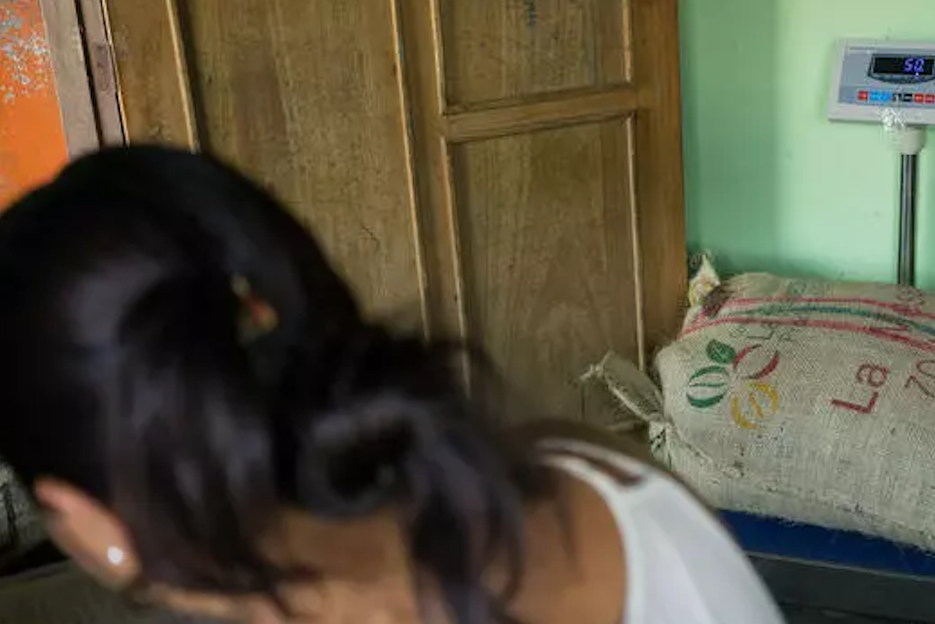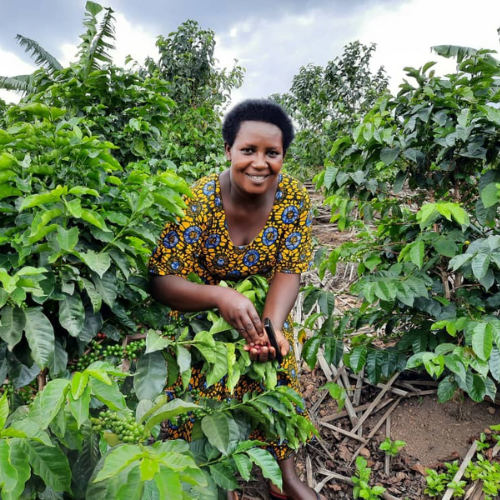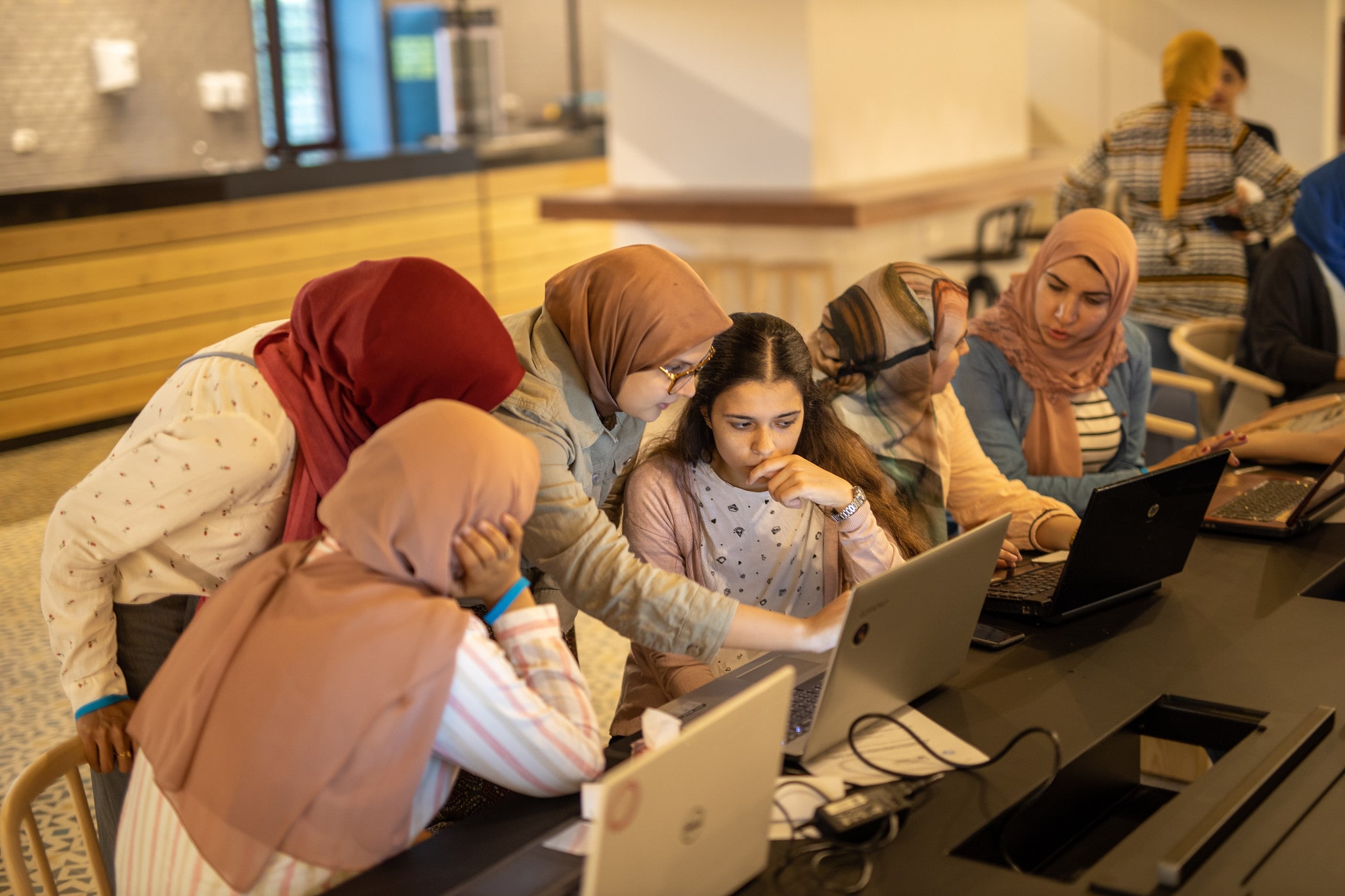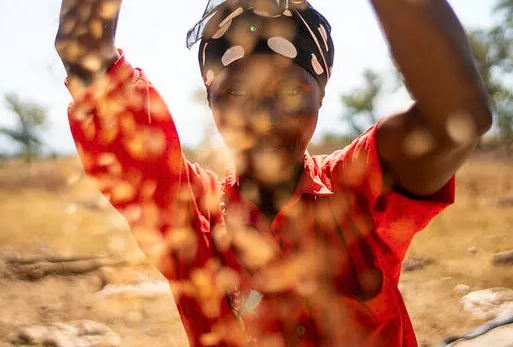
Leveraging the Enabling Environment to Achieve Scale in Women’s Economic Empowerment: An Interview with USAID’s Wade Channell
- Partner: USAID
- Publication Type: Blog
- Date: February 19, 2021
The Feed the Future Advancing Women’s Empowerment (AWE) program team spoke with Wade Channell, senior economic growth advisor for gender with USAID about how we can leverage the enabling environment to achieve scale in women’s empowerment.
Read More
What Does It Take to Achieve Scale in Women’s Empowerment Activities?
- Partner: USAID
- Publication Type: Blog
- Date: February 18, 2021
Insights and examples of approaches to scaling women’s empowerment from the Feed the Future Advancing Women’s Empowerment (AWE) program team, particualrly relating to gains in agricultural productivity, resilient and sustainable livelihoods and nutrition.
Read More
Rethinking the Future of Women’s Empowerment: Gender-Based Violence & COVID-19
- Partner: FHI 360
- Publication Type: Blog
- Date: December 1, 2020
We explore the current state of gender-based violence in Egypt to conclude our two-part blog series — co-produced by FHI 360 and MarketShare Associates — on Rethinking the Future of Women’s Empowerment in response to the global pandemic.
Read More
Social Norms and Persona Design: Background Note
- Partner: CGAP
- Publication Type: Background Note
- Date: November 2020
This background note provides guidance for implementers and designers to apply a social norms lens onto a persona tool. It is to be used to develop a more nuanced understanding of women and the social norms that impact their ability to interact with financial services.
Read More
Measuring the intangible: lessons from USAID partners on how to measure the impact of organizational learning and adaptive management
- Partner: USAID, Dexis Consulting Group
- Publication Type: Journal Article
- Date: September 11, 2020
This paper explores lessons learned from a USAID-funded learning network of implementing partners, known as CLAIM, which developed innovative methods to measure the seemingly intangible contributions of collaborating, learning, and adapting (CLA) to organizational effectiveness and development outcomes.
Read More
Rethinking the Future of Women’s Empowerment: Economic Engagement & COVID-19
- Partner: FHI 360
- Publication Type: Blog
- Date: October 20, 2020
We kick off the first of a two-part blog series – co-produced by FHI 360 and MarketShare Associates – on Rethinking the Future of Women’s Empowerment in response to the global pandemic with exploring COVID-19’s impact on women’s economic engagement in Egypt.
Read More
Gendered Social Norms in Financial Inclusion: A Diagnostic Study from Southeastern Turkey
- Partner: CGAP, MetLife Foundation
- Publication Type: Report
- Date: July 2020
The influence of gendered social norms has not been systematically analyzed or widely incorporated into financial inclusion programming. This diagnostic aims to identify social norms that affect how women access, use, and benefit from financial services. The goal is to guide practitioners toward a better understanding of the underlying dynamics. By identifying actionable insights, practitioners can design interventions that target the root causes of consumer behaviors that limit the potential benefits of financial inclusion interventions for women.
Read More
Resources for a Gendered Approach to Monitoring, Evaluation, and Learning During COVID-19
- Partner: USAID
- Publication Type: Blog
- Date: May 21, 2020
Tools and resources for a gendered approach to monitoring, evaluation and learning (MEL) during the COVID-19 pandemic compiled by the Feed the Future Advancing Women’s Empowerment (AWE) program team.
Read More
Pathways to Systemic Change in Kenya’s Livestock Sector
- Partner: Kenya Markets Trust, Gatsby Africa, UK’s Department for International Development (DFID)
- Publication Type: Case Study
- Date: May 2020
This case study examines Kenya Markets Trust's impactful interventions in the Kenyan livestock sector, emphasizing market-driven solutions and collaborative efforts with various stakeholders to enhance productivity, income generation, and overall livelihoods for smallholder farmers.
Read More
How to better serve smallholders: Key learning from INNOVATE’s 3-year initiative on non-traditional finance for agriculture
- Partner: Mennonite Economic Development Associates (MEDA), International Development Research Centre (IDRC)
- Publication Type: Blog
- Date: May 12, 2020
This blog, co-written by MEDA and MarketShare Associates, summarizes key learnings from INNOVATE’s three-year initiative assessing the potential of non-traditional finance to enable adoption of smallholder agricultural innovations in South Asia, South America and East Africa. The blog shares insights on customer centricity, smallholder products and services, smallholder household decision-making, and policy and regulatory transformation. The authors also provide recommendations for implementers, policy makers, donors, and the private sector to re-think how programs and policies are implemented, and how products and serviced are designed and delivered.
Read More

